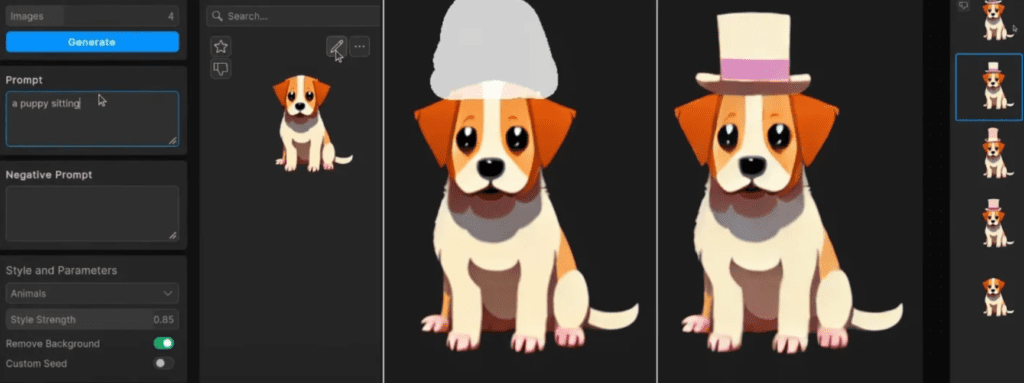TL;DR:
- Unity introduces Muse, a suite of AI-powered tools for game developers.
- Muse initially focuses on texture and sprite generation, with plans for animation and coding.
- Announced at the Unite conference alongside Unity 6 and a cloud-based platform.
- Aims to empower smaller developers with efficient AI solutions, streamlining workflows.
- Sentis allows developers to integrate complex AI data models into Unity Runtime.
- AI for animation and behaviors planned for future additions.
- Unity emphasizes responsible AI practices, avoiding copyright infringement.
- Muse is available as a standalone offering for $30 per month.
Main AI News:
Unity, a key player in the world of game development, is stepping into the realm of generative AI with Muse, a groundbreaking suite of AI-powered tools designed to enhance the creative process while upholding ethical standards. Muse is set to revolutionize the development landscape by initially offering texture and sprite generation capabilities, with plans to expand into animation and coding in the future.
At the recent Unite conference in San Francisco, Unity unveiled Muse alongside a cloud-based platform and the highly anticipated Unity 6 engine update. This move comes on the heels of a series of significant changes within the company, including a major product plan reversal and a change in leadership. Unity appears poised to return to its core mission: empowering developers.
Unity has long championed the cause of smaller developers who often lack the resources to access comprehensive development platforms like Unreal. The introduction of Muse’s AI tools promises to be a valuable addition for developers who need efficient solutions, allowing them to focus on their creative work rather than spending endless hours crafting intricate textures or sprites.
While various tools already exist for generating or modifying assets, the true innovation lies in Muse’s ability to seamlessly integrate these capabilities within the developer’s primary workspace. This streamlined workflow enables developers to say, “Create more like this,” without having to navigate external tools, format assets, or manage disparate resources.

Source: Unity
AI assets find widespread utility in prototyping, where minor imperfections and deviations from perfection are acceptable. However, presenting gameplay concepts with original, context-appropriate art can make a significant difference when pitching ideas to publishers or investors. Muse’s AI-driven art generation empowers developers to convey their vision more effectively.
Another intriguing feature within Muse is Sentis, which Unity describes as a tool that “enables developers to bring complex AI data models into the Unity Runtime to create new gameplay experiences and features.” This innovative tool, currently in open beta, offers developers the flexibility to incorporate custom AI models into their projects, potentially leading to groundbreaking gameplay experiences.
Looking ahead, Unity plans to introduce AI capabilities for animation and behavior, further enhancing the development process. These specialized scripting and design processes could benefit immensely from the initial drafts and creative assistance provided by generative AI.
Crucially, Unity emphasizes its commitment to ethical AI practices. In light of concerns surrounding intellectual property infringement, Unity has taken measures to ensure that Muse’s AI models are trained responsibly, respecting the copyrights of other creators. The company has developed custom models trained on Unity-owned or licensed imagery, avoiding any unauthorized use of assets.
Unity Muse will be available as a standalone offering for $30 per month, and the community’s feedback on the product’s value proposition is highly anticipated. With Muse, Unity is not only empowering developers but also setting a new standard for ethical and responsible AI-driven creative tools in the gaming industry.
Conclusion:
Unity’s introduction of Muse signifies a significant step in empowering developers with ethical AI tools. This move is likely to enhance the market by offering streamlined asset creation, customization through Sentis, and a commitment to responsible AI practices, ultimately benefiting developers and the gaming industry as a whole.

